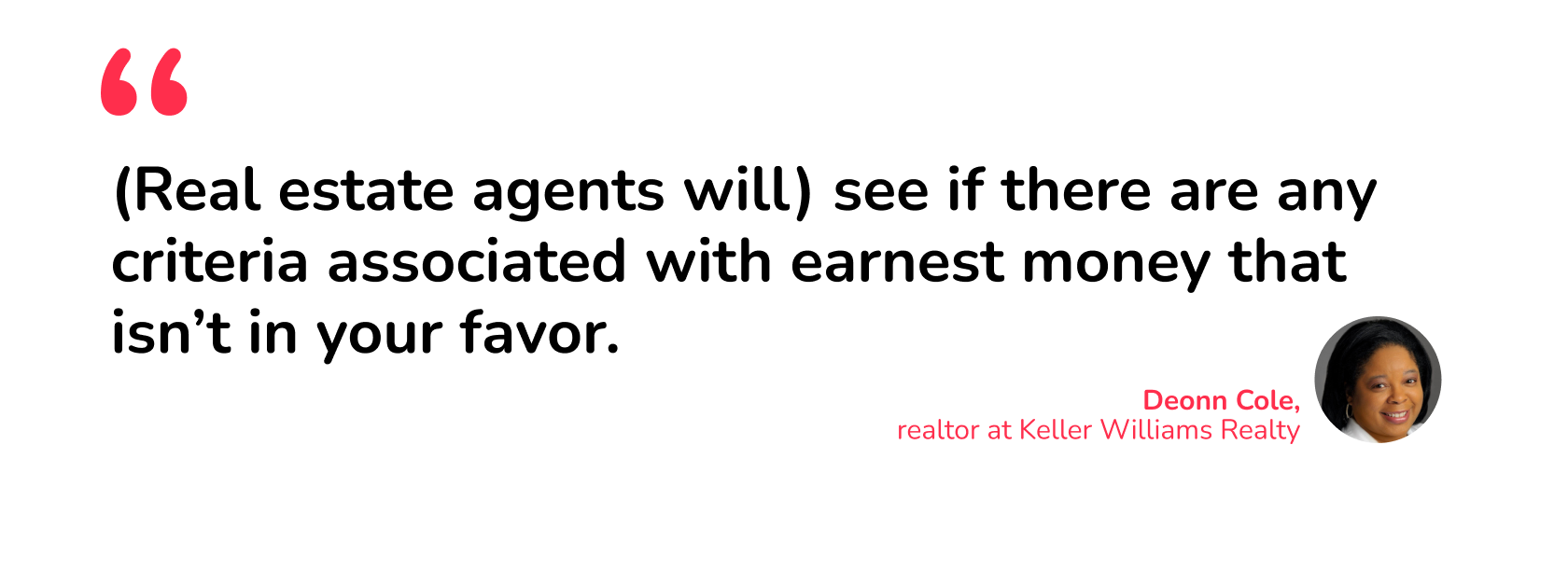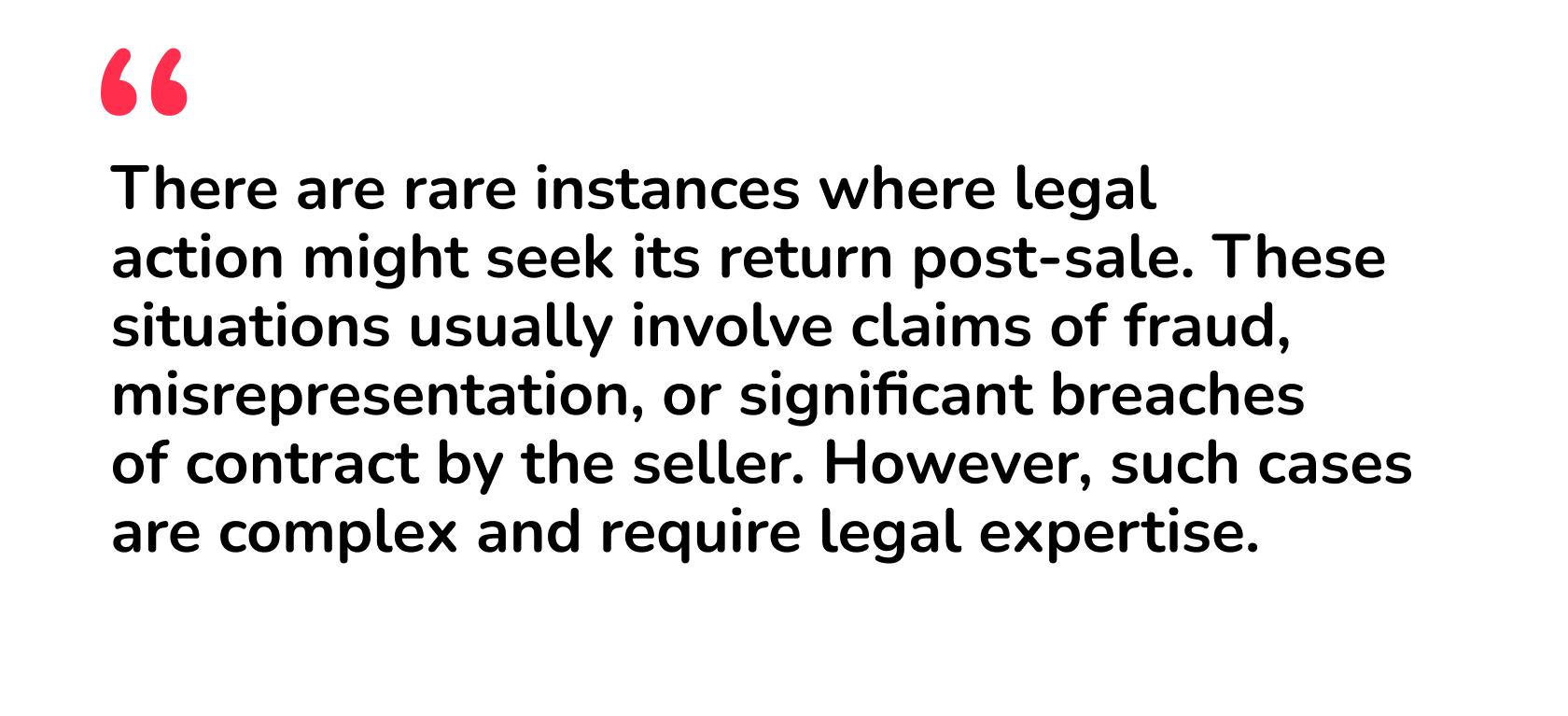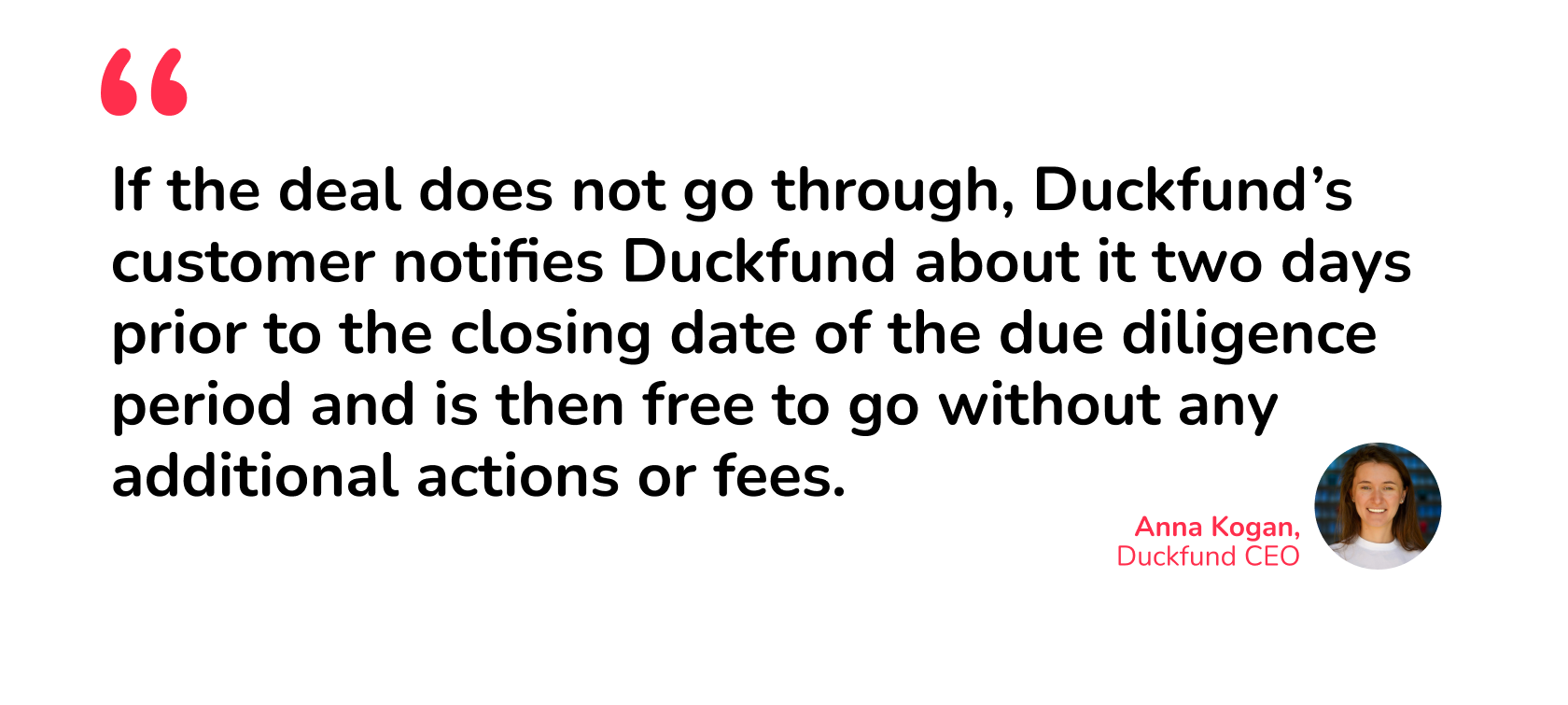Is Earnest Money Refundable? The Ultimate Guide

Life is full of uncertainties, but your deposit shouldn’t be one of them.
Anyone who’s thought about buying real estate recently has probably grappled with this question: Is earnest money refundable?
In 2025’s unpredictable market, seller demands and tricky purchase contracts make it feel like earnest money deposits are at risk, especially for first-time buyers.
A buyer who knows that getting earnest money back is possible – should things not work out – can feel more confident in negotiating the best deal for them.
They’ll also know they will avoid a potentially costly mistake.
So, under what circumstances is a buyer’s earnest money refunded in 2025? In this guide, we’ll answer this question by looking at how earnest money works and covering the following:
- What is earnest money?
- Is earnest money refundable in 2025?
- Do you get earnest money back after closing?
- When can a seller keep earnest money? A summary
Knowing if earnest money is refundable is important, but so is having it. Contact Duckfund to find out how we can help raise money to lock down the property of your dreams.
What is earnest money?
Earnest money is a type of good faith deposit made by a buyer and signals serious intent in a real estate purchase, whether in a home buying or commercial transaction.
It’s calculated as a percentage of the purchase price and is normally between 1 and 5% of the purchase price. However, this could rise to 10%, depending on the location.
The funds are paid to a third party: typically an escrow account by a title company. This deposit protects the seller if the buyer backs out without a valid reason, as outlined in the purchase agreement and the clauses within it, including a home inspection or financing contingency.
But is earnest money necessary?
Well, earnest money is now standard in many competitive markets, including North Carolina, Ohio, and Texas. “Earnest money is almost like a social norm,” says Stash Geleszinski, Managing Director of the Cincinnati office at CRE firm Capstone. “It’s an important thing. It says, 'Okay, I'm here to play.'”

Indeed, this type of deposit is now so universal that many buyers figure out how to pay earnest money online to save time.
When used well, the earnest money amount can be used to influence the seller’s decision, especially in competitive markets where they might receive an array of offers.
However, should things go wrong, the buyer risks losing this amount – a potentially heavy financial blow, especially in the commercial real estate industry where earnest money deposits can reach eye-watering amounts.
Is earnest money refundable in 2025?
So, is the earnest money deposit refundable at any point?
In a word, yes. However, several mitigating factors can lead to the cancellation of the money refund, ranging from a breach of contract to the buyer’s failure to meet deadlines.
In what follows, we’ll run through several property-buying scenarios that could play out and what happens to earnest money at closing in each case.
Do you lose earnest money if you back out?
Let’s say you’re the buyer and you decide to pull out of the deal: is earnest money returned in this situation?
This will come down to the real estate contract obligations that you’ve met up to this point.
“If a buyer waives contingencies prematurely, fails to meet set deadlines, or gets cold feet and abandons the transaction, this could result in the loss of their earnest money deposit”, says the National Association of Realtors in their 2025 consumer guide.
If, however, you have carried out the inspection checks and you’re not happy with the property then you can trigger common contingencies and get your money back.
Under these circumstances (and depending on the purchase contract), you would be within your rights to back out and take your earnest money deposit with you.
The next section looks at these contingencies in more detail.
When do you get earnest money back?
Whether earnest money is refundable in Texas or North Carolina hinges on the terms of the real estate contract and the buyer's obedience to its contingencies.
These contingencies could be many, which is why Deonn Cole, a realtor at Keller Williams Realty talking to Business Insider, recommends buyers have a real estate professional with them to go through their purchase agreement with a fine tooth comb. “(They will) see if there are any criteria associated with earnest money that isn’t in your favor”, he says.

This criteria could include several types of contingency. Here are a few examples.
- Home sale contingency: If you’re unable to sell your current home within a specified timeframe for a certain sale price, then you have the right to back out under this clause.
- Appraisal contingency: This lets you back out if the property appraises for less than the agreed-upon purchase price.
- Financial records contingency: Here, the buyer gets to scrutinize the property's income and expense records before finalizing. If its profitability doesn’t meet its financial expectations, they can back out.
- Zoning contingency: If specific zoning conditions are not met, such as the granting of permits or clearly defined regulations, then the buyer could back out.
- Environmental contingency: These assessments consider flood risks, endangered species, and potential remediation costs (among others) so that the property meets environmental standards.
Can you get earnest money back after an inspection?
Once the inspection is complete, homebuyers and investors find themselves confronted with a key question: do you get earnest money back if an inspection fails?
The property inspection is one of the most important stages of the buying process, and the inspection contingency comes into play if this stage doesn’t go well.
In short, this contingency allows you to cancel the sales contract if the inspection reveals certain issues that affect the purchase, like major structural defects that you were not aware of.
Under these circumstances, you would be entitled to an earnest money refund.
Is earnest money refundable if financing falls through?
As a buyer, you can also back out of the deal if something goes wrong with your funding, provided it’s set out in the purchase agreement in the form of a financing contingency.
This could happen if your mortgage loan application is denied, despite your best efforts to secure financing within the agreed-upon timeframe. In competitive markets, lenders may have stringent requirements, and even buyers with seemingly strong financial profiles can face unexpected hurdles.
This trend has led to many buyers turning to alternative lending methods, like Sign Now Pay Later, which have more flexible lending criteria and higher acceptance rates.
Do you get earnest money back after closing?
Up until now, we’ve looked at the chances of an escrow agent releasing earnest money prior to closing a commercial or home purchase. But how about after the sale has gone through – is earnest money refundable at this point?
Well, sale completion is kind of like a sealed envelope. Once it's stamped and delivered, the contents are finalized and cannot be altered.
If earnest money was involved, then it would have been applied toward your closing cost, down payment, or both.
Here's a breakdown of how that works:
- Earnest money as a credit: The earnest money you deposit is essentially a credit toward the total amount you owe at closing. It reduces the final amount you need to pay.
- Closing costs: These are fees and expenses associated with finalizing the real estate transaction, including things like title insurance, lender fees, and attorney fees. Your earnest money can be applied to these costs.
- Down payment: If your closing costs are less than your earnest deposit, the remaining balance is applied toward your down payment.

When can a seller keep earnest money? A summary
Anyone dealing with earnest money should know under what circumstances a seller is entitled to keep be it a commercial purchase or a new home.
A seller can generally keep the earnest money when a buyer breaches the terms of the contract. This typically occurs when a buyer backs out of the deal for reasons not covered by contingencies outlined in the purchase agreement.
For instance, if a buyer simply has a change of heart or fails to meet deadlines specified in the real estate contract, the seller will probably be entitled to cancel the earnest deposit refund. This is because the earnest money serves as a form of compensation for the seller, who took their home off the market based on the buyer’s offer.
However, sellers cannot keep the earnest money for no good reason. The terms of the contract must clearly state the conditions under which the earnest money becomes theirs. A real estate attorney can help ensure both parties understand their rights and obligations.
Sellers will work with a real estate agent to ensure the contract is clear and protects their interests in case the deal falls through.
If you’re a buyer, you should always carry out detailed due diligence and understand the contingencies in the purchase agreement to avoid losing your deposit.
You could also seek greater flexibility in your liquidity. In today's competitive property market, having funding options available so that you can seize opportunities when they come along.
Duckfund lets you do this without tying up significant capital: what’s more, if the deal fails then you get to walk away.
CEO Anna Kogan explains: “If the deal does not go through, Duckfund’s customer notifies Duckfund about it two days prior to the closing date of the due diligence period and is then free to go without any additional actions or fees.”

This changes the game for changes the game for buyers, who can now take on new deals with increased confidence and agility.
Understanding the nuances of earnest money, along with access to ready finance, makes successful real estate deals easier than ever before.
Ready to buy the property you’ve always wanted? Sign up to Duckfund and find out how we can make sure you have the funding to make it happen right now.
Real Estate
Financing

- Approval within 24 hours
- Fund multiple properties at once
- No full deposit upfront — soft deposit only
- Apply in under 2 minutes
Secure your next development — zero upfront capital required.
Start with Duckfund’s Sign Now, Pay Later model.- No capital commitment
- Close faster
- Scale with confidence
